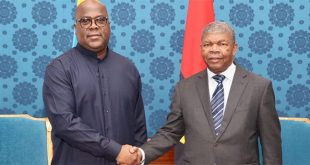
Two law firms—MMAKs and Bowmans—did the bulk of the work throughout the entire process and are demanding the biggest sum, according to insiders. The Independent has learnt that another law firm, Sebalu and Lule Advocates, is also demanding hundreds of millions of shillingsfor the services it offered Bank of Uganda.
While the details of expenditure surrounding Crane Bank have become a major subject of debate following the release of the August auditor general’s report into defunct banks. However, The Independent understands that these have always been central to negotiations betweenBoU and the former proprietor of Crane Bank.
Insider sources say Sudhir has been demanding from BoUofficials information related to how they spent those amounts. The tycoon is keen to show that some of the expenses incurred were not legitimate and that as such cannot be his responsibility.
Sudhir spent Shs96 billion to run Crane Bank for the whole year 2015. Even though the circumstances under which the BoU managed the same bank were different, the Shs500 billion or five times more they spent on running the bank has raised a few eyebrows.
Some Shs. 12 billion of this went to law firms, audit firms, among others. MMAKs alone, according to the auditor general’s report walked home with Shs. 3Bn.
Incidentally, these fees have been a concern at the highest level in the walls of the central bank.
According to documents seen by The Independent, at one point, BoU Governor TumusiimeMutebile described the fees demanded by one of the lawfirms—MMAKS—as “exorbitant”.
Concerned about the money going to the law firms, on March 22 Mutebile asked the Bank’s legal counsel, Margaret Kasule to compile a report for him detailing all the matters being handled by external lawyers in regard to Crane Bank.
Kasule responded with these details after four days. Some of these details also give a hint about why Mutebile fell out with Justine Bagyenda, the former BoU Executive Director Banking Supervision.
On March 27 Mutebile wrote to the Bank’s legal counsel expressing concerns about “exorbitant” fees demanded by MMAKS.
“M/s MMAKS Advocates are the Bank’s principal external lawyers engaged on a retainer basis, for which the Bank has enjoyed a long term relationship for quite some time,” reads the letter in part, “I, therefore, expect that their charges should be reasonable based on negotiated hourly rates, actual costs incurred and reimbursable fees rather than basing their fees as a percentage of the claim from Ismail Tabule and others that is considered exaggerated.” Mutebile’s letter followed a request for approval to pay MMAKS US$590,000 (Approx. Shs2.2 billion) for a matter involving a one IRO Ismail Dabule and ORS VsBoU.
As such,Mutebile directed that for matters of this magnitude, a negotiation team should always be constituted to include senior management in order to strengthen transparency and accountability. Mutebile also directed that external lawyers be rotated and that the bank should be charged in local currency if there are no justifiable foreign costs.
Two months later, however, an even bigger invoice arrived from MMAKS.
The law firm was demanding payment of US$ 847,175 (Approx. Shs3.2 billion) for recovering money from former Crane Bank shareholders.
“While I approved this payment in view of the tight schedule we faced in resolution of Crane Bank,” Mutebile wrote again, “I wish to note that in my judgement, the USD 847,175 representing 5 percent of recoveries is high, I wish to direct that for future recoveries, this figure should be negotiated downwards.”
In light of Mutebile’sdirective, the legal counsel wrote to Bagyenda noting that if they were to continue with MMAKS, they needed approval from the Governor.
Bagyenda responded that she had met the Governor and he had cleared MMAKS to keep handling the matter.
 The Independent Uganda: You get the Truth we Pay the Price
The Independent Uganda: You get the Truth we Pay the Price


